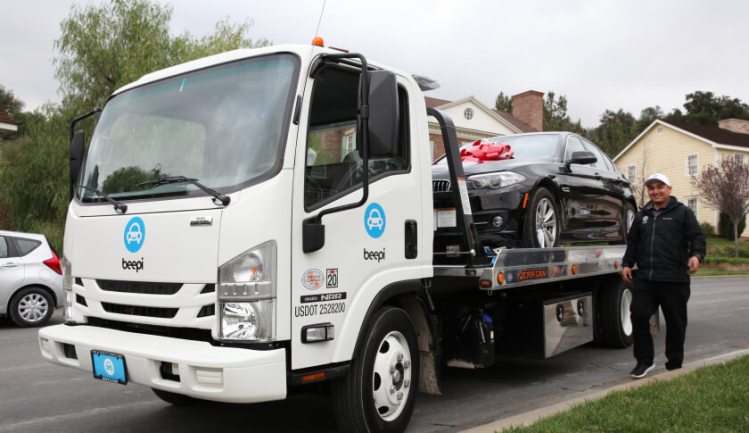Beepi, an online marketplace for buying and selling used cars, has hit a major pothole.
The company, which was operating in 16 U.S. cities, plans to shut down in “non-profitable markets outside of California,” laying off 180 workers and merging with a not-yet-launched venture called Fair, a statement from Beepi confirmed. Beepi operated in Arizona, California, Florida, New York, and Washington as well as the greater Washington D.C. area. Neither company would say how many markets would be shuttered. News about the shakeup was first reported by tech news site TechCrunch.
In a statement, Beepi painted a rosy picture of its alliance with Fair by saying “that it’s joining forces with a number of automotive industry veterans to integrate dealers into Beepi’s digital car-buying platform.” Those veterans include Georg Bauer, formerly of BMW, Mercedes-Benz, and Tesla; Scott Painter, formerly of TrueCar; and Fedor Artiles, formerly of Mercedes-Benz, Chrysler, Volkswagen, and Tesla.
Ale Resnik, co-founder and CEO of Beepi, described the relationship with Fair.com as a partnership. But this partnership comes with a significant pivot. Fair’s business model includes car dealers selling on its site, while Beepi’s was based on consumers buying and selling cars between themselves.
From the statement provided by Beepi to Fortune:
The number one objective will be to scale the business profitably while also integrating dealer partners. Beepi will shift its focus by tapping into a ready supply of high-quality cars for customers, and its infrastructure will be well positioned to deliver in a radically different way that modern customers have grown accustomed to.
Beepi marketed its business around a 240-point inspection that all cars must pass before being sold on the marketplace. Professional inspectors would visit the seller’s home to verify that cars listed were in good condition as a way to help build trust with customers.
Beepi competed with several other online used car startups including Carvana, Shift, and Vroom. In the past year, Beepi tried to differentiate itself from rivals and earn more revenue by adding new services including car auctions. It also added a used car leasing option for customers and full nationwide delivery.
Beepi, which employed 270 people as of September, had raised nearly $149 million over the past two years from venture capital firms including Redpoint, Sherpa Ventures, Foundation Capital, Capital Invent, and DE Shaw. Part of the money came from $70 million raised in a funding round last year led by SAIC Motor Corporation, one of China’s largest domestic automakers and parts supplier.
Still, those funding goals fell short of the $300 million that Beepi’s CEO had once suggested was imminent.
Getting a clear picture of Beepi’s finances is difficult. It never shared specific revenue numbers, instead preferring to provide fuzzier metrics like percentage growth in sales.
Beepi may have shopped itself around, at least informally, before it partnered with Fair. Shift CEO George Arison sent an email obtained by Fortune to update his employees about the news that implied that Beepi was on the block.
“We’ve suspected that this may happen; in fact Beepi even approached us recently about buying their company,” Arison said in the email. “I am sad for everyone at Beepi who will be impacted by this news. That said, I want to emphasize that this ultimately will present opportunities for Shift.”
Fortune has confirmed that Beepi approached Shift through “back channels,” according to Shift business and product chief Toby Russell. However, Shift’s board never received a formal sales presentation.
Beepi’s exit does present an opportunity for Shift, which despite its different business model that includes test drives before buying, still competed with the startup. For instance, since Beepi stopped advertising in the past week, Shift’s conversions on Google ads increased over 25 percent in both San Francisco and Los Angeles, according to Arison’s email.
This story originally appeared on Fortune.com. Copyright 2016


